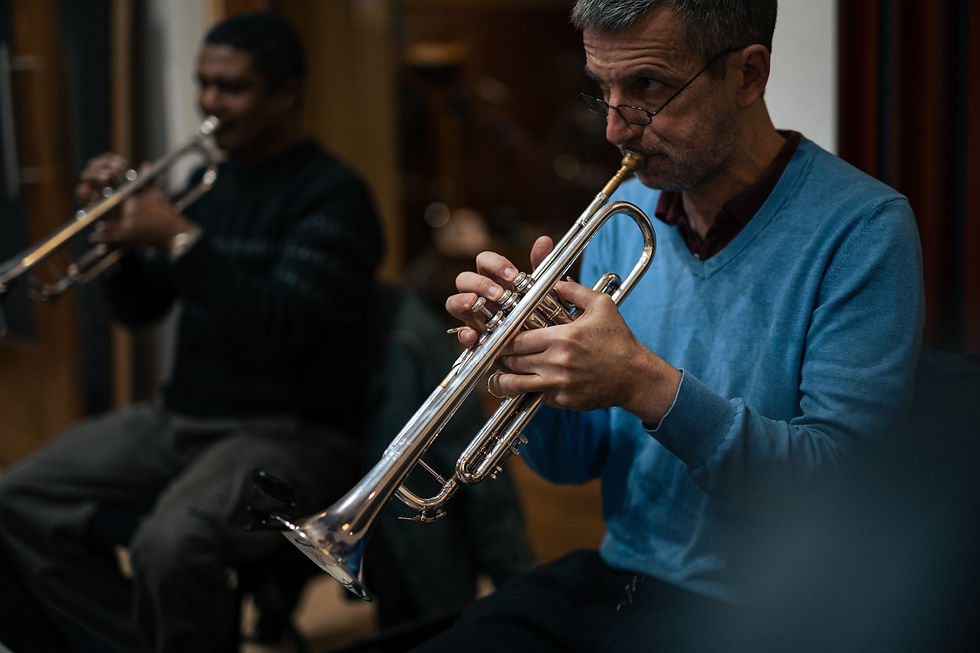Understanding the Cost of Creating a Game Soundtrack
Video game music needs to keep players engaged in games for hours on end and it is one of the essential components of game design. Often scores can be so detailed and magnificent that the albums that are released from the games get hundreds of thousands of streams, multiple awards, and sometimes even live concerts attended by loyal fans.

The process of scoring a video game uses similar skills to that of scoring any other piece of visual media. A composer needs to understand the director’s vision, know which emotional beats to hit, and how to captivate the audience. However, there are some additional challenges placed on game composers. To keep players engaged for potentially hours on end the music must be the exact right balance between atmospheric, emotional, and engaging, without becoming repetitive, draining, or distracting when looped repeatedly.
This will demand a blend of creativity, technical skill, and experience. As such, finding the right composer for a specific project can be time-consuming, but undoubtedly worth it. In this article, we will break down the variables and costs associated with video game soundtracks.
Type of Score
The costs related to recording a game soundtrack can be similar to those of recording a score for a film (read more about the costs of film scores here.
As with most other forms of visual media scoring, video game music can be anything, and is only limited by a composer’s imagination (and budget).

Game scores can be entirely synth-based to a full classical orchestra and choir, or combinations. These different types of scores will require different amounts of work and contributors. A live orchestral score with a full choir is certainly going to have different requirements than an entirely synth-based score, and different rates attached to them. After separating the composer’s creative fee, the composer’s team fee, and the cost of live recording, mixing and mastering will still need to be factored in.
Scope
A project’s size, scope and the demand for music will influence the creative fee. As with a film composers’ team, you might find in a game composers team an orchestrator, additional writers, assistants, sound engineers and mixing and mastering engineers, not to mention the team involved in performing and recording the music. The amount of music needed will also vary widely per project and thus influence the amount of time it will cost the composer and their team.
Going rates
Trying to pin an exact number on what a video game score can and should cost is incredibly difficult. Some articles state that the going rate for game composers on a AAA project should be USD 1000 per finished minute of music. Indie games could range from USD 200 – USD 400, and on the low end could be under USD 100.
The rate can vary massively. A rule of thumb for developers and composers is that the budget for the score should be around 15% of the total project budget of the game. Some developers might change this percentage depending on how much they value the music in their game. For instance, some indie developers may opt for more budget-friendly options, while larger studios might invest significant resources into creating massive and memorable soundtracks for their games.
Creative fees, Bundling, and Rev-Share
Something that should be set out early in negotiations for a project is what portion is the creative fee (See more about the breakdown of composer fees) and what portion of the budget can be used for things such as professional mixes, live recording, more instrumentalists and so on.

Alternatively, a developer might be more interested in paying a bundled fee which is a lump sum amount which the composer must distribute and allocate within their team. This type of package tends to exclude the possibility of royalties on the backend.
Sometimes composers can negotiate a package where instead of charging a higher up-front fee, they retain their rights of ownership over the music, leading to additional income for the composer.
Recording Costs
The actual cost of recording live music for a video game can be similar to a feature film. The cost will depend on the length and complexity of the amount of music needed to be recorded. A composer will have similar expenses to consider such as the amount of time in the studio needed, studio personnel, musicians, and mixing and mastering services.
When recording for a video game you need to be strategic and consider what type of recording method will give you the best result, maybe striping will be better than recording in a hall for a particular project. To ensure budget efficiency and avoid overtime and needing to book extra days, make sure your music is prepared meticulously.

The cost of creating a video game soundtrack can vary significantly depending on factors such as the project's scope, the music's complexity, and the composers' experience level. High-quality soundtracks with full orchestras and choirs will require a larger budget compared to electronic or synthesized music.
Despite the costs involved, investing in a high-quality video game soundtrack can elevate the overall gaming experience and contribute to the success of a game. Music plays a crucial role in setting the tone, evoking emotions, and enhancing gameplay, making it a vital aspect of game development.
If you are ready to elevate your game music to the next level, we are here to help! Whether you are a seasoned composer looking for a more budget-friendly way to record your music, a junior composer, or a game developer, we are ready to bring the music for your game to life. Contact us today to discuss your project.


Commentaires